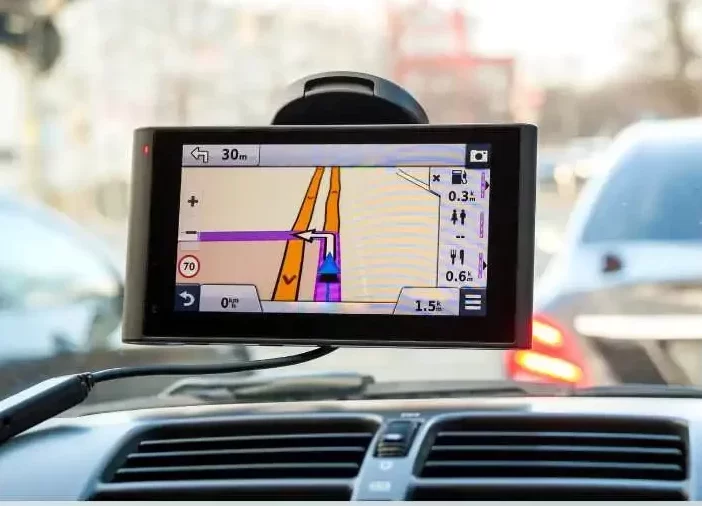Fleet management in Nigeria is no small feat. With a market size projected to reach $16.86 billion by 2025, the stakes are higher than ever for businesses to optimize their operations.
Apart from managing vehicles, you’re navigating a complex landscape of challenges unique to Nigeria. From Lagos’ infamous traffic to fuel price volatility, every decision impacts your bottom line.
But here’s the good news: with the right practices, you can turn these challenges into opportunities for growth and efficiency.
How to Conquer Nigeria’s Fleet Management Hurdles
Nigeria’s roads are a battlefield of inefficiencies:
- Unpredictable traffic patterns
- Fluctuating fuel prices
- Vehicle maintenance nightmares
- Security concerns
Beyond the inconvenience of delays and client satisfaction, they can become major profit-killers.
Coupled with Nigeria’s competitive business landscape, your fleet can make or break you. You are constantly juggling things to ensure:
- Slashed operational costs
- Boosted productivity
- Enhanced customer satisfaction
- A serious edge over your competitors
Let’s look at some best practices that will revolutionize your fleet management strategy below:
1. Implement Real-Time Vehicle Tracking To Have Your Eyes on the Road
Knowing exactly where each of your vehicles in realtime now is no longer a vague nice-to-have feature. In Nigeria today, you need precise, real-time data which you can get with the power of GPS tracking.
Here is what you gain by doing adopting vehicle tracking:
- Theft prevention (a major concern in high-risk areas)
- Improved response times delivering better customer satisfaction,
- Efficient dispatching to save you wasted fuel and time
- Driver accountability

How Salcomms tracking solutions elevates your fleet management:
- Precision tracking: Know your vehicle’s location within meters
- Geofencing alerts: Set virtual boundaries, get instant notifications
- Historical data: Analyze past routes for ongoing optimization
- Mobile accessibility: Manage your fleet from your smartphone
Remember, vehicle tracking helps your drivers become more efficient, your customers get better service, and you? You get peace of mind.
2. Optimize Route Planning: Beating Lagos Traffic
Lagos traffic is a major profit killer. Every minute your vehicles sit idle in gridlock is cash down the drain. But what if you could outsmart the chaos?
Here are some strategies to navigate Lagos’ unique traffic patterns:
- Time-based routing: Avoid peak hours on notoriously congested routes
- Alternative path mapping: Discover and utilize lesser-known shortcuts
- Real-time traffic updates: Reroute on the fly when accidents or unexpected jams occur
- Construction zone avoidance: Stay updated on roadwork and plan accordingly
| Hotspot | Peak Hours | Alternative Route |
|---|---|---|
| Third Mainland Bridge | 7-10 AM, 4-8 PM | Eko Bridge (off-peak) |
| Lekki-Epe Expressway | 7-11 AM, 5-9 PM | Ikorodu Road (early morning) |
| Apapa-Oshodi Expressway | All day | Inland routes via Ikeja |
Leveraging telematics data for routing magic:
- Historical performance analysis: Identify consistently problematic areas
- Driver behavior insights: Optimize routes based on individual driving styles
- Fuel efficiency mapping: Choose routes that minimize consumption
- Delivery time predictions: Set realistic ETAs based on actual data
According to ABI Research, “Collecting and analyzing data such as fuel usage, vehicle maintenance, and driver performance is essential for effective fleet management.” This data-driven approach to route optimization can become your secret weapon against gridlock.
3. Enhance Fuel Management
Fuel prices and availability in Nigeria are so unpredictable making it challenging to forecast your actual costs. One day you’re cruising, the next you’re hemorrhaging money at the pump or having to buy at the black market. While you can’t control the market, you can control how you use fuel.
Some techniques to slash fuel consumption include:
- Idle time reduction: Every 10 minutes of idling burns 1 liter of fuel
- Speed management: Maintain optimal speeds for fuel efficiency
- Regular maintenance: Well-tuned engines consume less fuel
- Driver training: Teach fuel-efficient driving techniques

How To Monitoring fuel theft and fraud:
- Install tamper-proof fuel sensors
- Implement fuel card systems with purchase limits
- Analyze fuel consumption patterns to spot anomalies
- Conduct random fuel level checks
According to 360Connect reports, “Keeping track of fuel efficiency and idling times can help detect patterns that may lead to increased costs.” In Nigeria’s volatile fuel market, this level of oversight is critical for keeping fleet management efficient.
Remember, every liter saved is money in your pocket.
Salcomms Trackers’ advanced telematics solutions turns you into a master of fuel efficiency.
4. Prioritize Preventive Maintenance: Taming Nigerian Roads
Potholes, uneven surfaces, and extreme weather conditions wreak havoc on your fleet. But here’s the secret: preventive maintenance isn’t a cost; it’s an investment.
Creating a maintenance schedule for Nigerian roads:
- Frequent oil changes: Every 5,000km or less, depending on road conditions
- Tire rotations and alignments: Monthly checks, rotate every 10,000km
- Suspension system inspections: Bi-monthly, more often for heavy-duty vehicles
- Brake pad replacements: Every 20,000km or sooner for city driving
- Air filter changes: Every 15,000km or more frequently in dusty conditions
Maintenance Schedule Tailored for Nigerian Roads
| Component | Frequency | Why It Matters |
|---|---|---|
| Shocks/Struts | Every 50,000km | Absorb road impact, prevent vehicle damage |
| Ball Joints | Every 40,000km | Critical for steering, wear faster on rough roads |
| Wheel Bearings | Every 30,000km | Prevent wheel wobble, crucial on uneven surfaces |
Using telematics to predict and prevent breakdowns:
- Real-time engine diagnostics: Catch issues before they become disasters
- Mileage tracking: Schedule maintenance based on actual usage, not just time
- Driver behavior monitoring: Identify habits that may lead to premature wear
- Historical data analysis: Spot patterns in vehicle performance to predict future issues
Telematics-driven maintenance helps you to go beyond just fixing problems to preventing them before they show up.

5. Improve Driver Safety and Training Programs
In Nigerian cities, driving successfully is a science and an art form all by itself.
We are sure you are well aware of the common safety challenges in Nigerian cities:
- Aggressive driving
- Overloading: Exceeding weight limits and risks
- Poor road conditions: Navigating hazardous terrain
- Traffic law violations: Ignorance of road rules and driving best practices
Here’s the quick run down for Implementing driver scorecards and incentives:
- Score drivers on:
- Speed adherence
- Harsh braking incidents
- Fuel efficiency
- On-time deliveries
- Safety record
- Incentivize improvement:
- Monthly bonuses for top performers
- Additional time off for consistent high scores
- Public recognition and awards
- Career advancement opportunities
Remember, safe drivers aren’t just good for safety; they’re good for business. Training drivers on best practices can lead to significant cost savings and building a culture of excellence.
6. Streamline Fleet Operations with Data Analytics
Data isn’t just numbers; it’s your roadmap to efficiency. In the Nigerian fleet management landscape, the right metrics can be the difference between struggling and thriving.
Here are some key performance indicators for Nigerian fleets:
- Fuel efficiency (liters per 100km)
- Vehicle utilization rate
- Maintenance costs per vehicle
- On-time delivery percentage
- Driver safety scores
- Route compliance

- Customizable dashboards: See the metrics that matter most to your operation
- Predictive analytics: Anticipate trends and plan proactively
- Automated reporting: Get daily, weekly, or monthly insights delivered
- Benchmark comparisons: See how you stack up against industry standards
Our advanced analytics turns every decision into a data-driven, measurable improvement.
7. Ensure Compliance with Nigerian Transportation Regulations
As a business, you should prioritize compliance with transportation so you can avoid fines and build a reputation as a trustworthy, professional operation.
Overview of relevant laws and regulations:
- Federal Road Safety Commission (FRSC) Act
- National Road Traffic Regulations
- Highway Code
- State-specific traffic laws (e.g., Lagos State Traffic Laws)
Here are some key compliance areas:
- Vehicle registration and licensing
- Driver qualifications and licensing
- Vehicle weight and dimension limits
- Hours of service regulations
- Environmental standards
How telematics can aid in compliance management:
- Automated record-keeping: Maintain digital logs of driver hours, routes, and vehicle maintenance
- Real-time alerts: Get notified when a driver is approaching hours-of-service limits
- Geofencing: Ensure vehicles stay within designated areas or routes
- Speed monitoring: Enforce speed limits and reduce violation risks
- Maintenance scheduling: Stay on top of required inspections and certifications
Common Compliance Issues and Telematics Solutions
| Compliance Issue | Telematics Solution |
|---|---|
| Exceeding driving hours | Automated time tracking and alerts |
| Unauthorized route deviations | Geofencing and real-time monitoring |
| Overdue vehicle inspections | Automated maintenance reminders |
| Speed limit violations | Real-time speed tracking and reporting |
With Salcomms Trackers’ compliance tools, you’re not just following the rules; you’re setting the standard for professional fleet management in Nigeria.
Make it a priority to stay ahead of the regulations, and you’ll stay ahead of the competition.
8. Enhance Security Measures for High-Risk Areas
Vehicle and cargo security are necessary measures to safe guard your fleet assets. The following strategies help you protect vehicles and cargo:
- Install anti-theft devices: Immobilizers, alarm systems, steering wheel locks
- Implement secure parking protocols: Well-lit, guarded facilities for overnight stops
- Train drivers in security awareness: Teach them to recognize and avoid potential threats
- Use convoy systems: Safety in numbers for high-value or long-distance transport
- Establish emergency response plans: Quick action protocols for theft or hijacking attempts
Leveraging Salcomms Trackers’ security features:
- Real-time location tracking: Know where your vehicles are, always
- Geofencing alerts: Get notified if a vehicle leaves designated safe zones
- Remote immobilization: Disable the engine remotely in case of theft
- Panic buttons: Drivers can send instant alerts in emergency situations
- Historical route analysis: Identify and avoid high-risk areas based on past incidents
Security Threat Levels and Recommended Measures
| Threat Level | Recommended Measures |
|---|---|
| Low | Basic tracking, driver training |
| Medium | Add geofencing, secure parking |
| High | Full suite of security features, convoy system |
9. Adopt Sustainable Fleet Management Practices
Sustainability isn’t just a buzzword; it’s a business imperative. In Nigeria’s urban centers, green fleet practices aren’t just good for the planet; they’re good for your bottom line.
Reducing environmental impact in Nigerian cities:
- Optimize routes to reduce mileage and emissions
- Implement idle reduction policies
- Invest in regular maintenance for better fuel efficiency
- Train drivers in eco-driving techniques
- Use telematics to monitor and improve environmental performance
Fleet Carbon Footprint: Before vs After Sustainable Practices
Before
High Emissions
Inefficient Routes
After
Reduced Emissions
Optimized Routes
Results
30% Reduction in Carbon Emissions
25% Increase in Fuel Efficiency
Exploring alternative fuel options for Nigerian fleets:
- Compressed Natural Gas (CNG): Lower emissions, potentially cheaper
- Liquefied Petroleum Gas (LPG): Widely available, cleaner than petrol
- Biodiesel blends: Can be used in existing diesel engines with minor modifications
- Electric vehicles (EVs): For urban operations, as infrastructure develops
- Hybrid vehicles: Blend of conventional and electric, good for varied operations
Remember, sustainability isn’t just about being green; it’s about being smart. Efficient, eco-friendly practices often lead to significant cost savings in the long run.
Driving Your Fleet into the Future
You’ve just navigated the top 10 fleet management best practices tailored for Nigerian businesses. But knowing the right things to do is miles away from being able to implement them.
That’s where Salcomms Trackers comes in. With over twelve years of experience in Nigeria’s transport industry, we guarantee that we can transform your operations with our fleet management solutions.
Ready to revolutionize your fleet management?
- Book a demo: See our cutting-edge telematics in action
- Get a custom assessment: We’ll analyze your fleet and show you where you can save
- Start small, scale big: Begin with a pilot program and watch the results roll in
GET IN TOUCH WITH US